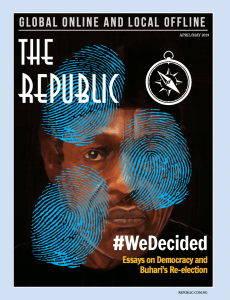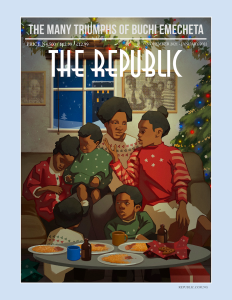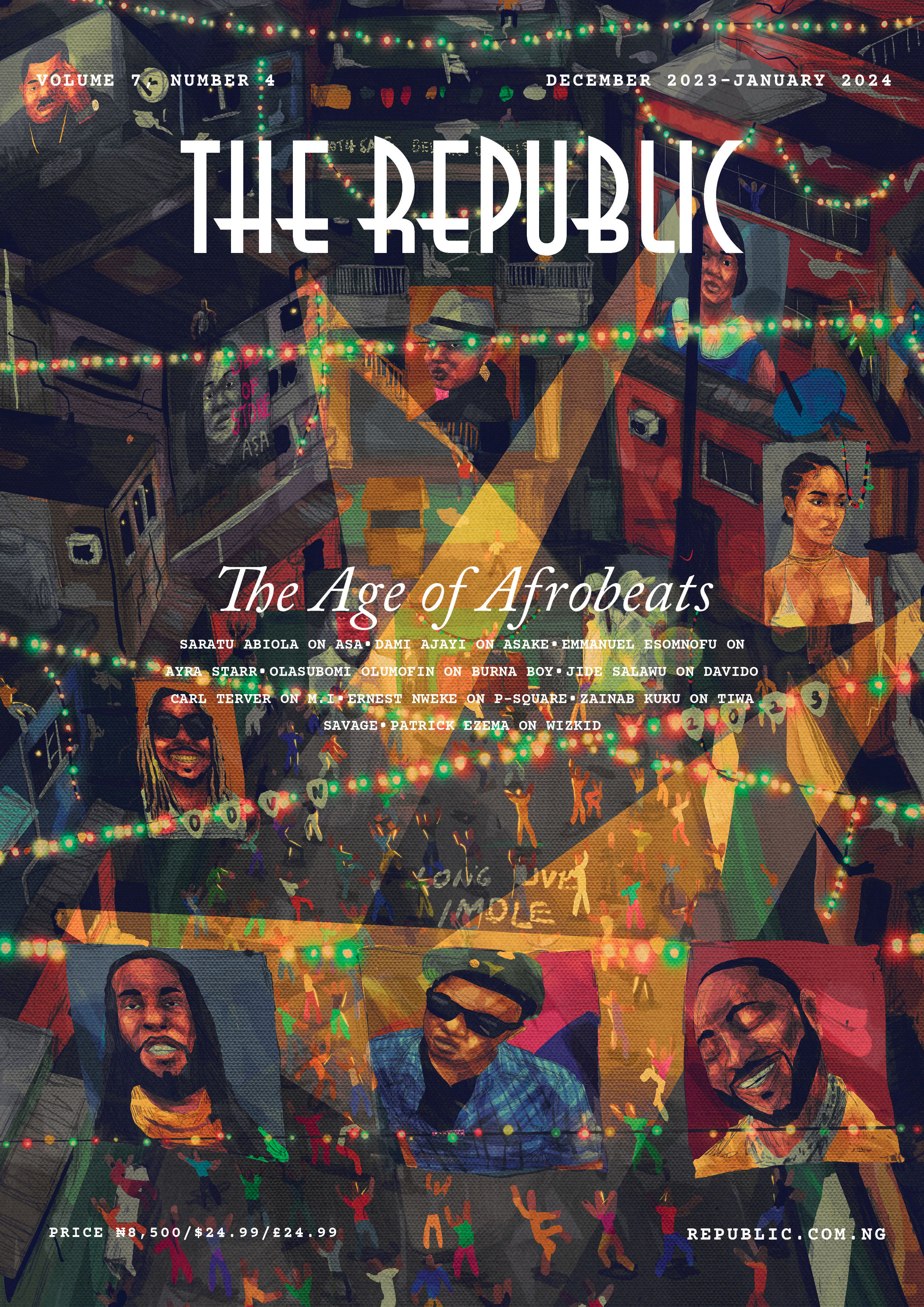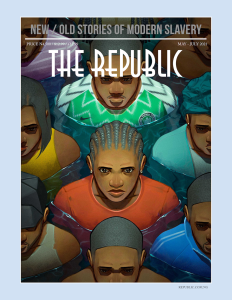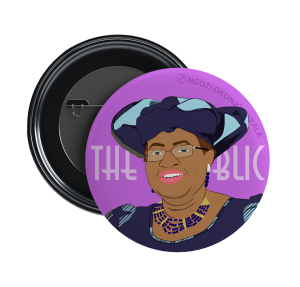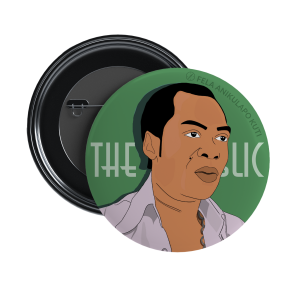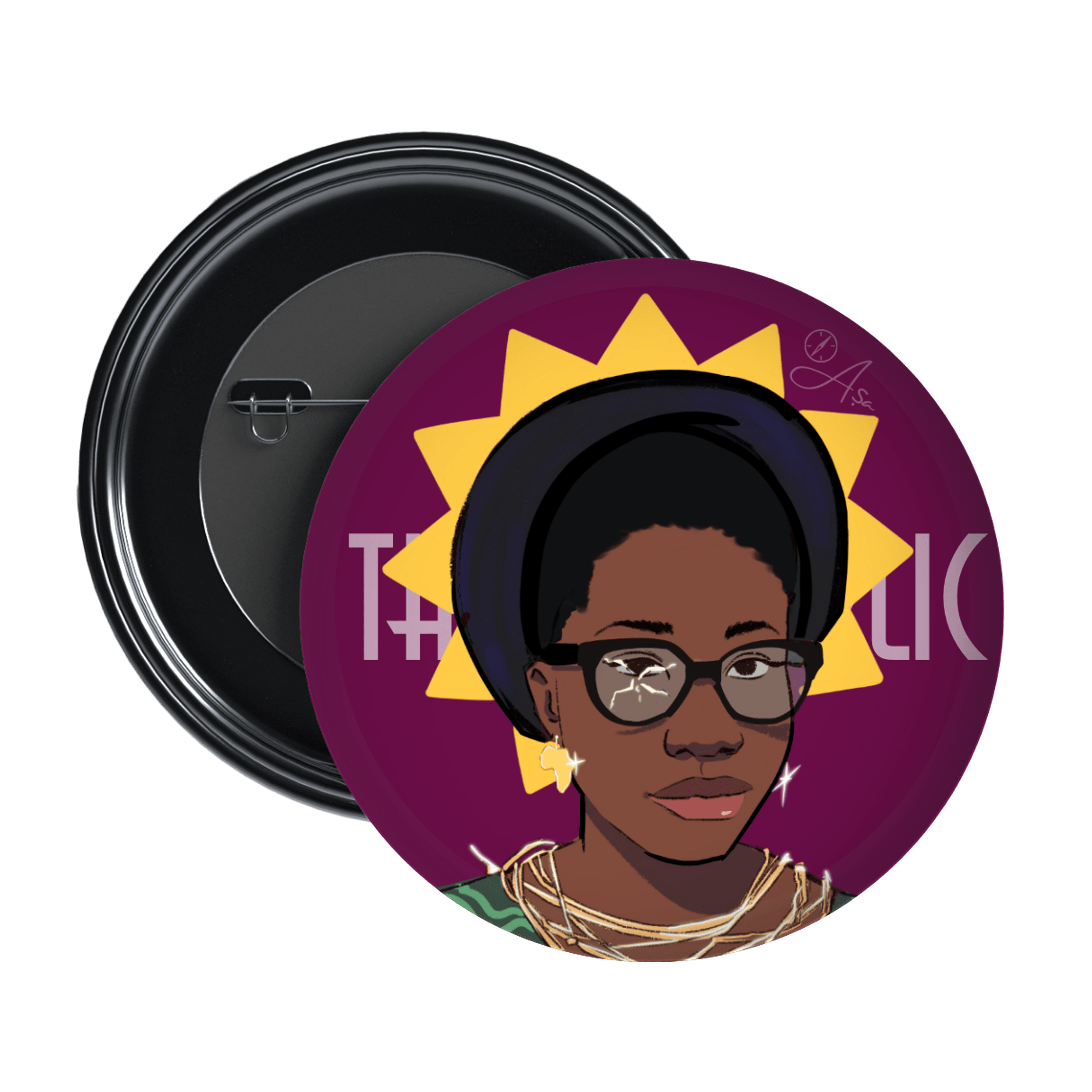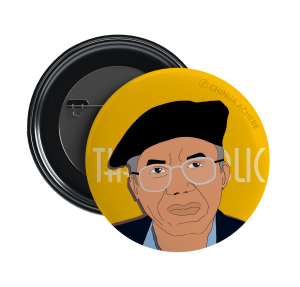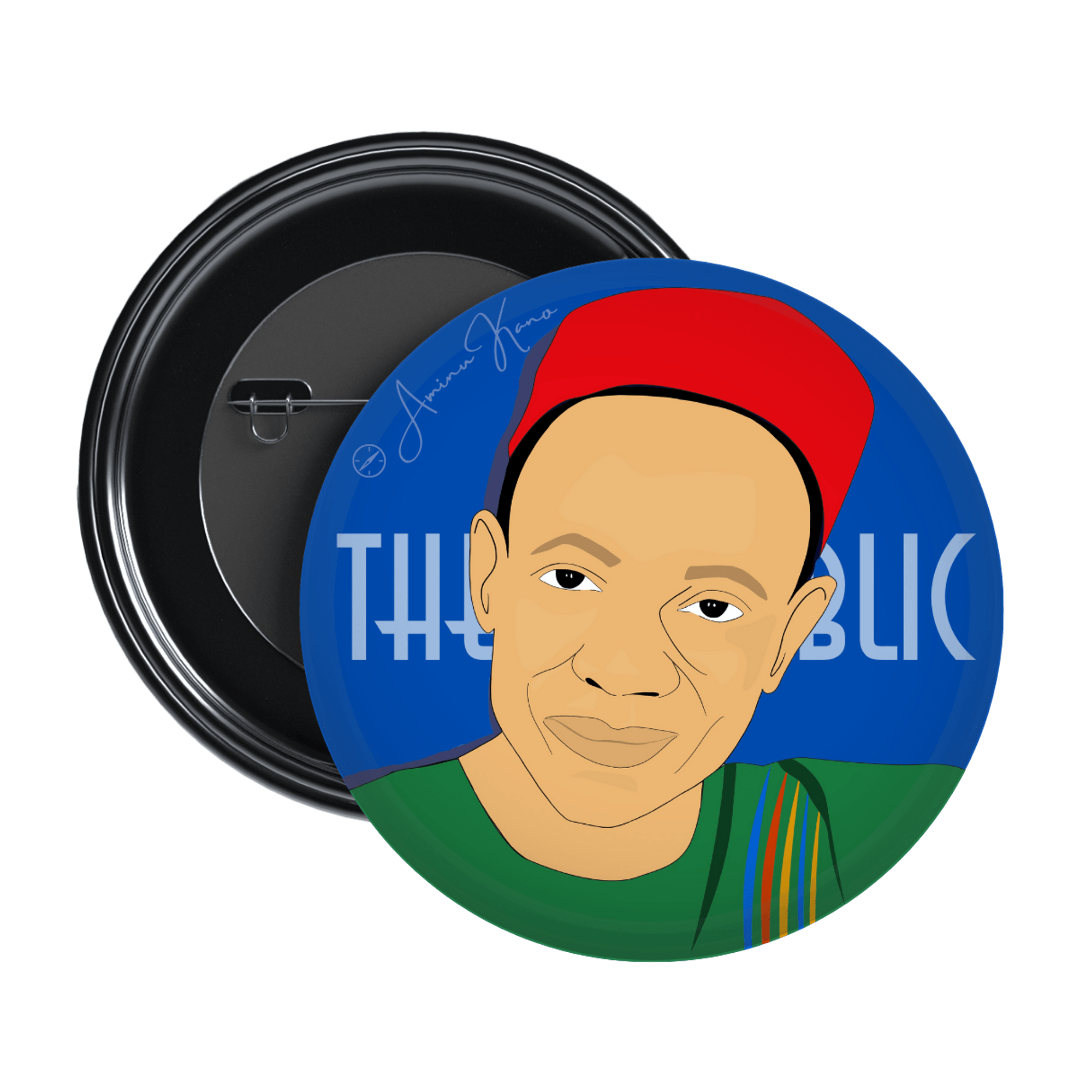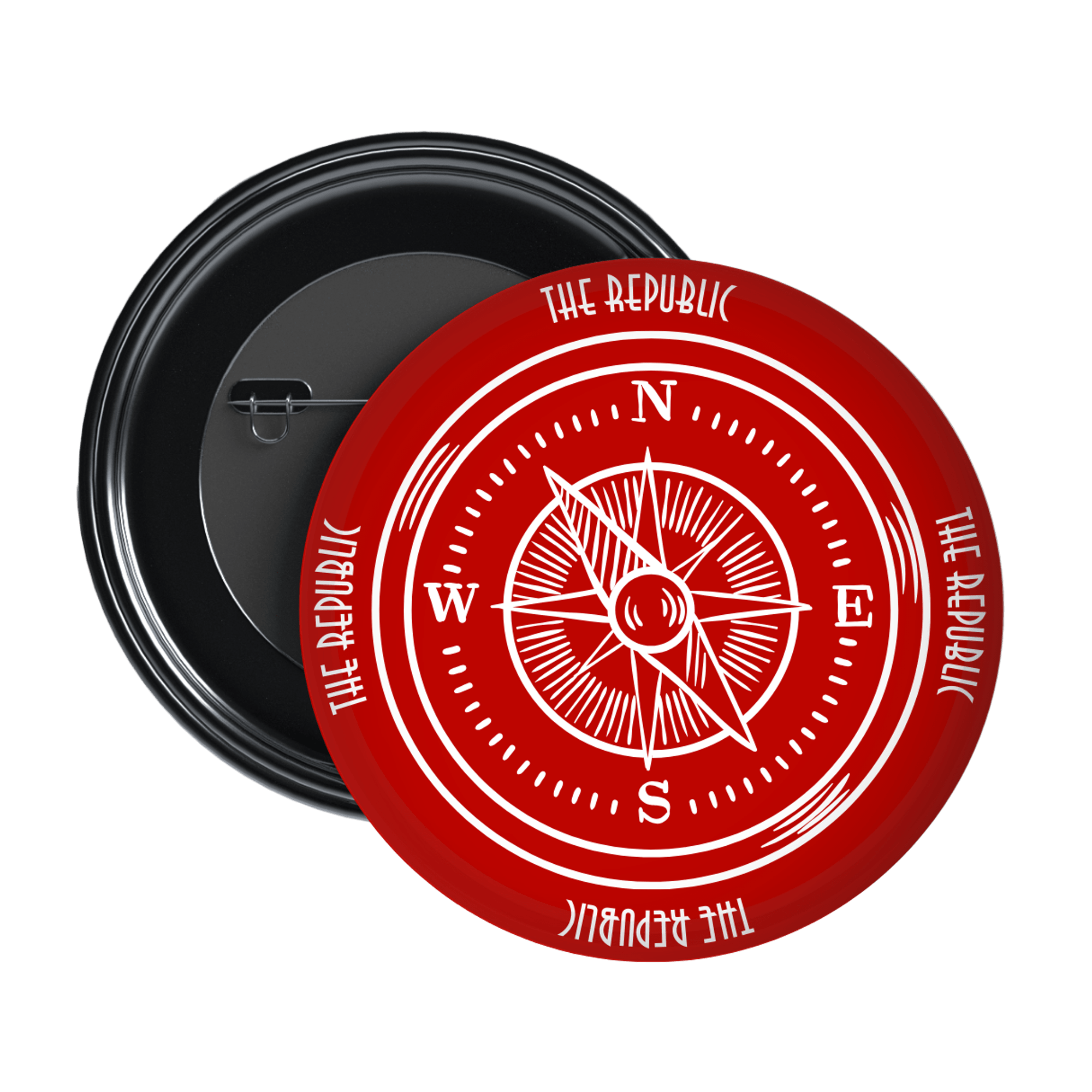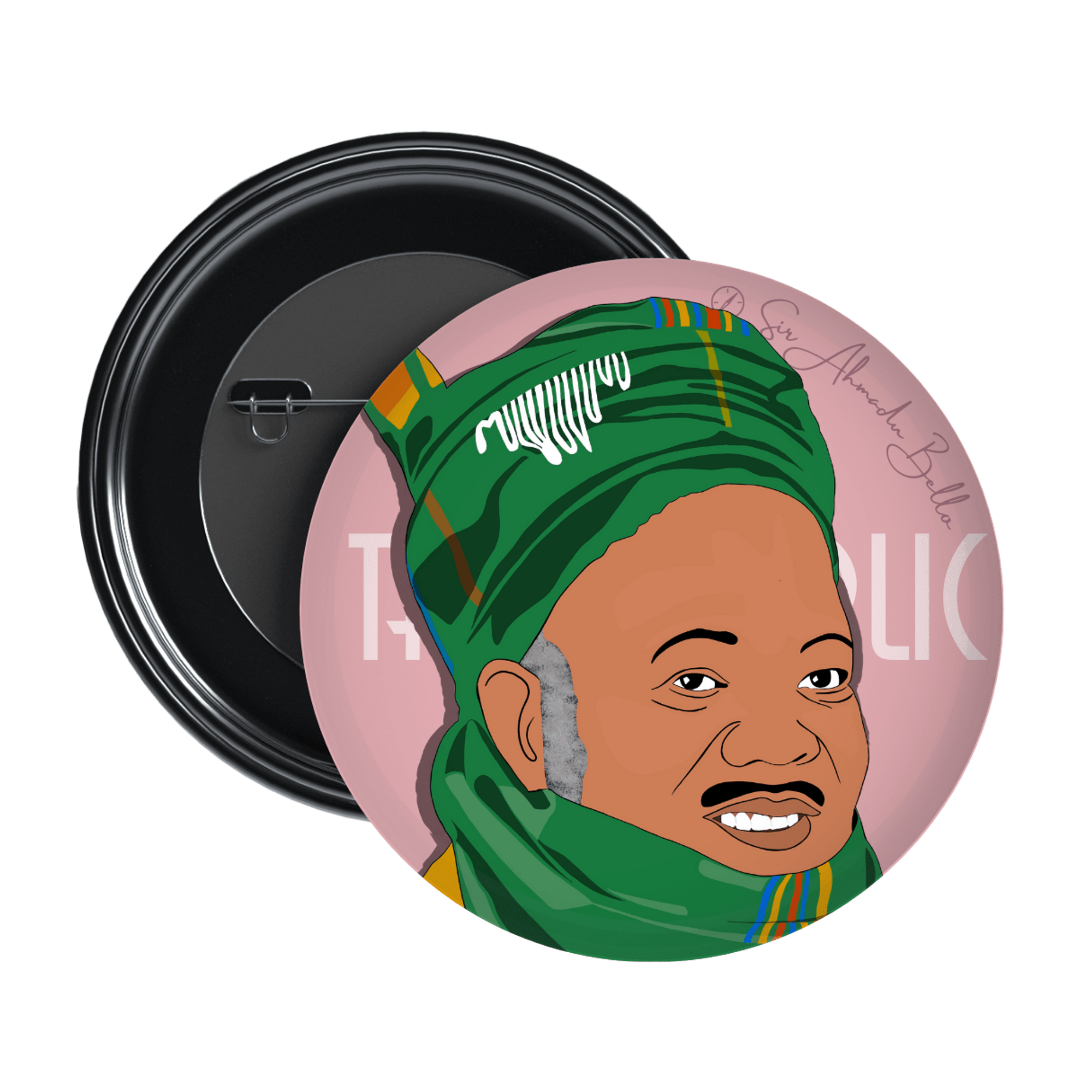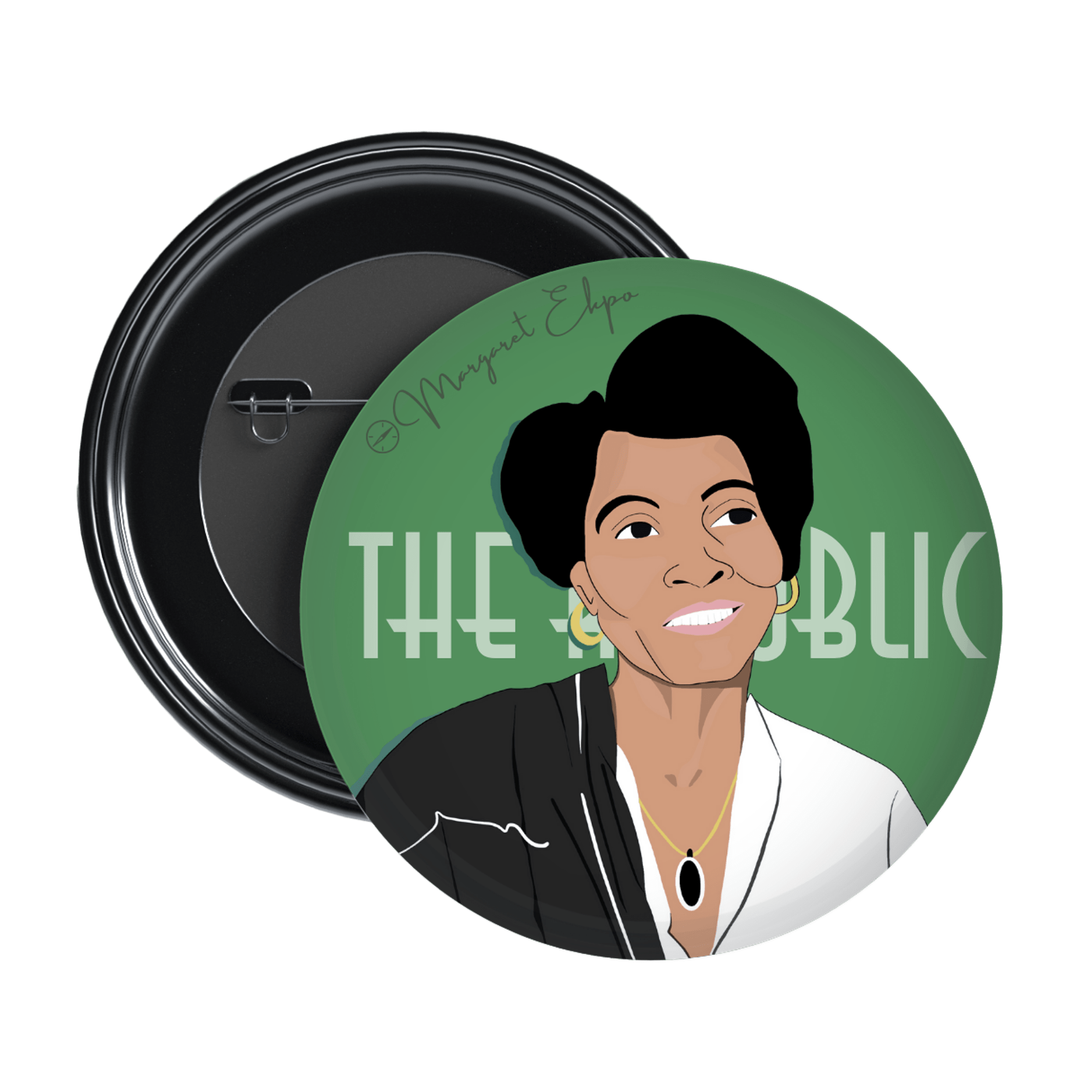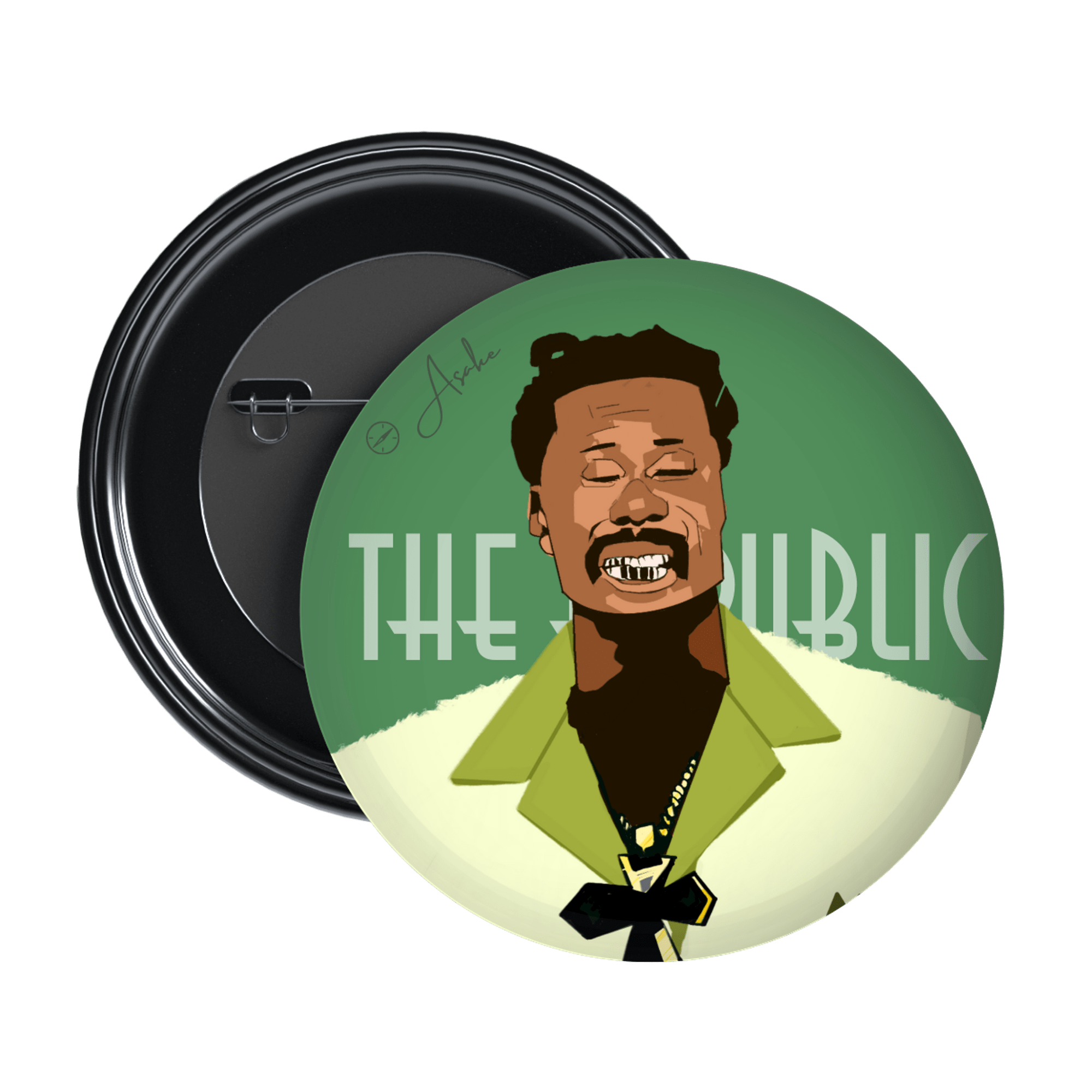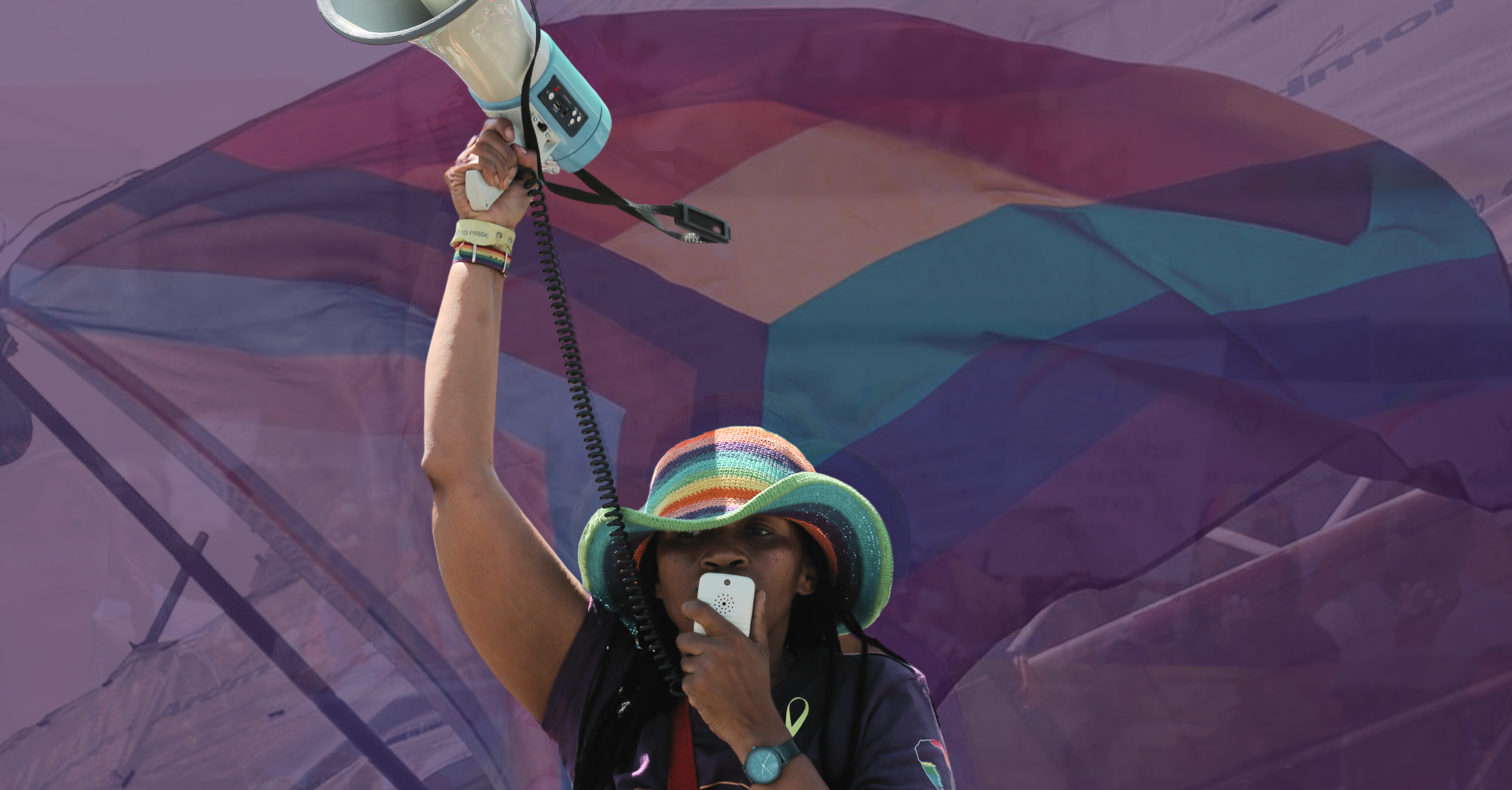
Soweto Pride 2023. AYANDA MZIZA / FLICKR. Collage by THE REPUBLIC.
the ministry of GENDER X FEMINISM
The West Sneezes, LGBTQ+ People in Africa Get a Cold

Soweto Pride 2023. AYANDA MZIZA / FLICKR. Collage by THE REPUBLIC.
the ministry of GENDER X FEMINISM
The West Sneezes, LGBTQ+ People in Africa Get a Cold
The increasing passage of anti-LGBTQ+ laws and sentiment in Africa is typically viewed through two lenses: the persistence of colonial laws and the influence of patriarchal nationalists who lay claim to cultural sovereignty by reinforcing patriarchal structures. However, there’s a more intricate dynamic at play between these two. The colonial laws are not new, and the homophobia of African states has been established since the colonial project. So why are we witnessing a surge in anti-LGBTQ+ legislation in Africa, especially amid global progress for LGBTQ+ rights?
An overlooked aspect is the intersection between the continuous Western imperialism and the agendas of patriarchal nationalists, and how these two inform each other. Recent examples from Ghana, Kenya, and Uganda illustrate a pattern: the enactment of laws criminalizing homosexuality under the guise of preserving ‘family values’ and resisting perceived Western influence.
In Uganda, the passage of the harsh Anti-Homosexuality Act in 2023 worsened the situation for LGBTQ+ people. Kenya’s proposed 2023 Family Protection Bill infringes on fundamental rights such as assembly, privacy, and access to sexual and reproductive health information and services. The bill aims to outlaw consensual same-sex activity and marriage. In Ghana, the 2024 Human Sexual Rights and Family Values Act was passed in February 2024, which prohibits LGBTQ+ advocacy, among other impediments to LGBTQ+ rights.
However, a noteworthy question is: are these countries rejecting LGBTQ+ people or what they perceive to be Western values? There is an occurrence that places the answer between these two.
While this essay primarily focuses on Nigeria, as nuances of other African countries differ, the trends are similar. It is important to zoom in on a specific state to show the complexity of this problem and how it manifests in various African countries.
QUEERNESS BEFORE THE SSMPA
From my research on queerness in Nigeria, I very quickly realized that queer people have always been present. So, the rise in the criminalization and suppression of LGBTQ+ rights in Nigeria in the early 2000s till now needs to be properly understood.
Before the early 2000s, queer people were legally reprimanded in Nigeria through the Criminal Code Act, the Penal Code, and the Sharia Penal Code. Like its predecessors, 2014’s SSMPA reflects Nigeria’s colonial legal legacy. It criminalizes same-sex marriages and LGBTQ+ organizations, imposing penalties of up to fourteen years in prison, highlighting the punitive stance towards queer people by Nigerian authorities.
Before the SSMPA, although queer people faced social marginalization, queerness still existed, albeit quietly. This wasn’t necessarily due to queerness being ‘invisibilized’, per se, but rather because queer acts weren’t always tied to a queer identity. Nowhere could you see this more than in the media, where you had celebrities that were doing things we would consider to be queer, such as dressing in androgynous ways but not being identified as queer, particularly as LGBTQ+. Consequently, queer people could engage in queer acts somewhat discreetly.
We can even see this play out in Lagos, and Nigeria as a whole, which embodies a subtle yet significant relationship with queerness. Queerness isn’t just an identity in Lagos; it’s embedded in aspects of our social life, expressed through various actions and behaviours. Interestingly, multiple spaces can be considered queer but rarely label themselves as explicitly queer. This is notably seen in Lagos’s lively rave and nightlife scenes and the fashion, art, and entertainment industries. These spaces have the energy of queer people organizing and participating in events that embrace queerness without overtly stating it. Queer acts are woven into these spaces without an overt acknowledgement of queer identities.
During the early 2000s, many movements addressing the needs of queer people embodied this by intertwining the needs of queer people with other causes. I had some discussions with activists that mobilized around the early 2000s, and they revealed a focus on sexual health, particularly concerning the HIV/AIDS epidemic, as a central issue for queer men. However, this didn’t limit activism to a singular concern; under the broader theme of sexual health, activism expanded to encompass a range of relevant issues, from homelessness to even providing fun and entertainment. Queer women similarly rallied around sexual health, especially reproductive health. These collective efforts sparked discussions and initiatives within activist circles, embedding queerness within broader movements in Nigeria’s history.
Notably, activists often rely on Euro-American activism models, overlooking diverse historical approaches to social change. Even within the Euro-American framework, there are numerous interconnections among movements. Queer movements weren’t historically always explicitly labelled as such or organized under the LGBTQ+ umbrella; they were intertwined with broader societal issues. This interconnectedness went beyond narrow identity-based frameworks and addressed various concerns that affected people in multiple ways. It is important to understand that mobilizing under the unified LGBTQ+ umbrella is a recent Western phenomenon, as is the LGBTQ+ identity group that followed.
During the early 2000s, the idea of mobilising under the LGBTQ+ umbrella was present in Nigeria but was far more nuanced than the way we have it now, especially in mainstream spaces. Notably, the activists didn’t shy away from explicit LGBTQ+ activism. Some Nigerian queer activists participated in international conferences, such as the International Lesbian, Gay, Bisexual, Trans, and Intersex Association Conference in Geneva. However, despite this, many activists also recognized the importance of considering local contexts.
A notable example is Dare Odumoye, who was instrumental in the inclusion of the category of ‘Men Sleeping with Men’ (MSM) in the National AIDS and STD Control Programme. This was not simply about ‘gay men’ being included in the HIV/AIDS response, it was to highlight the intersections of the MSM category with the general population, including the fact that these men also have sex with women. Their inclusion was necessary to tackle the HIV/AIDS epidemic for everyone. It was not entirely about them being LGBTQ+, but on the material needs that extended beyond an LGBTQ+ identity.
Odumoye and various other activists like him worked to integrate LGBTQ+ concerns into broader movements. This highlights a historical narrative where queerness persisted, albeit often quietly on the terms of an identity to meet the material needs of queer people over the insistence on identity politics.
shop the republic
-
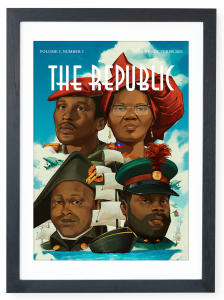 ₦70,000.00 – ₦75,000.00Select options This product has multiple variants. The options may be chosen on the product page
₦70,000.00 – ₦75,000.00Select options This product has multiple variants. The options may be chosen on the product page -
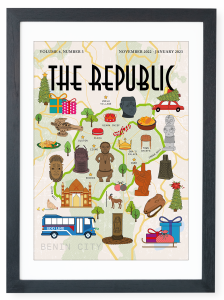 ₦70,000.00 – ₦75,000.00Select options This product has multiple variants. The options may be chosen on the product page
₦70,000.00 – ₦75,000.00Select options This product has multiple variants. The options may be chosen on the product page -
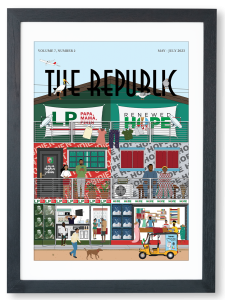 ₦70,000.00 – ₦75,000.00Select options This product has multiple variants. The options may be chosen on the product page
₦70,000.00 – ₦75,000.00Select options This product has multiple variants. The options may be chosen on the product page -
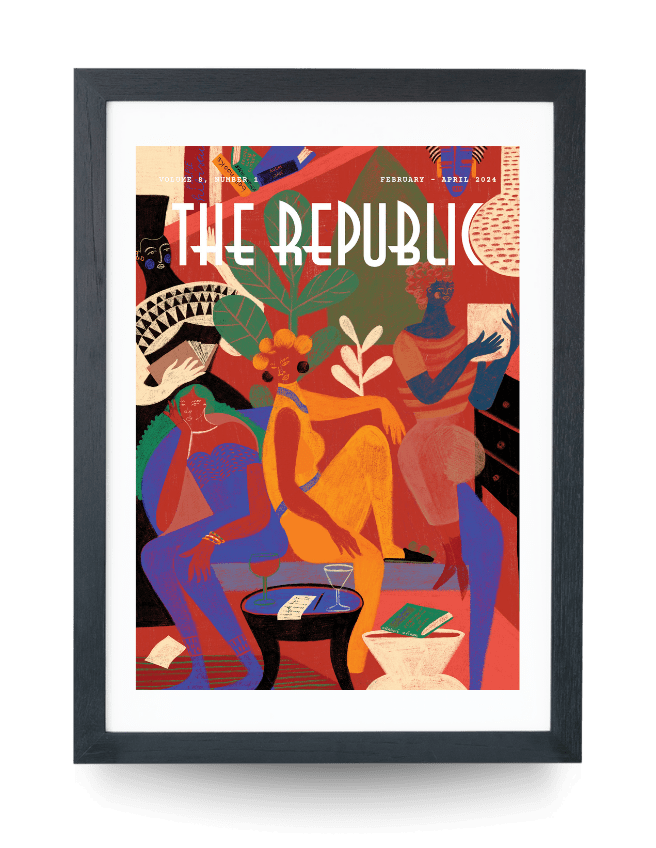 ₦70,000.00 – ₦75,000.00Select options This product has multiple variants. The options may be chosen on the product page
₦70,000.00 – ₦75,000.00Select options This product has multiple variants. The options may be chosen on the product page
shop the republic
-
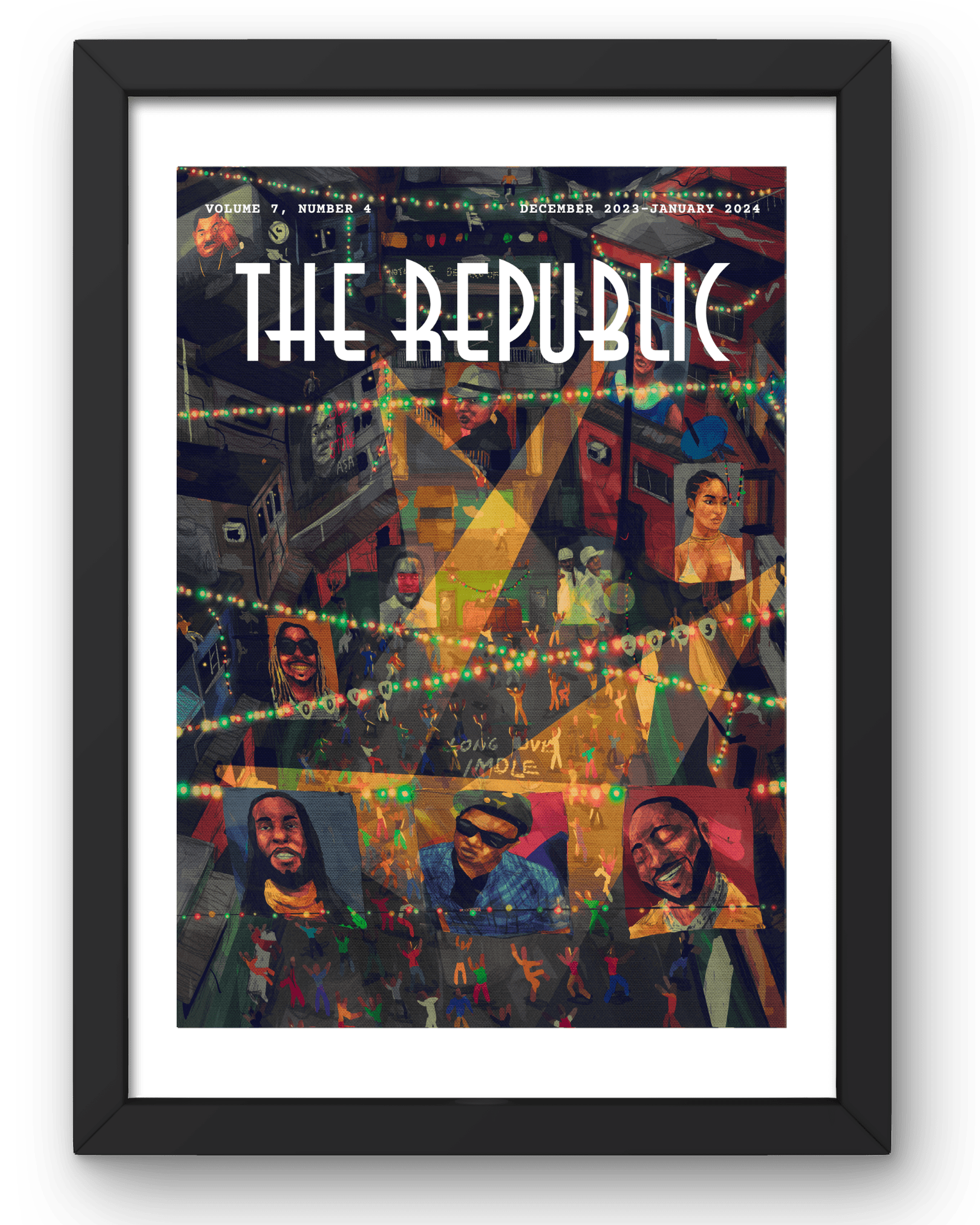 ₦70,000.00 – ₦75,000.00Select options This product has multiple variants. The options may be chosen on the product page
₦70,000.00 – ₦75,000.00Select options This product has multiple variants. The options may be chosen on the product page
THE GENEALOGY OF THE SSMPA
So, if queerness existed quietly, why did Nigeria, and some other countries in Africa, feel the need to punish it? Well, the evolution of LGBTQ+ rights in Nigeria is deeply intertwined with both domestic legislative developments and broader global socio-political shifts. The SSMPA is often seen as a pivotal moment for LGBTQ+ rights in Nigeria, but its origins trace back to the early 2000s. President Olusegun Obasanjo’s introduction of a bill to ban same-sex marriage in 2006 heightened legislative and social hostility towards LGBTQ+ people, fuelling increased societal homophobia.
The introduction of the bill to ban same-sex marriage and subsequent readings sparked significant controversy and difficulties for queer people before it was passed into law. In August 2007, authorities in Bauchi State arrested 18 people on suspicion of engaging in same-sex activities, followed by further arrests in 2008. In September 2008, Reverend Jide Macaulay, pastor of the LGBTQ+ House of Rainbow church in Lagos, was forced to flee the country due to media scrutiny, leading to the persecution and harassment of House of Rainbow’s members by the police. All these events occurred before the bill became law in 2014.
What is most important to consider is what the same-sex bill punishes. After all, queer people were already criminalized in Nigeria through the Criminal Code Act, the Penal Code, and the Sharia Penal Code, each operating within the different Nigerian regions. The bill primarily targets marriage within the LGBTQ+ community, as seen even in the name. This reflects concerns over Western LGBTQ+ activism’s impact on cultural and religious norms in Nigeria. This was evident from the bill’s introduction in response to ‘President Olusegun Obasanjo’s concern over homosexual relations and marriage encroaching on Africa’s most populous nation.’
The Nigerian government’s reaction aligned with reactions to LGBTQ+ developments in the West, such as the appointment of Gene Robinson as the first openly gay bishop in the US in 2003, which caused a lot of uproar among religious fundamentalists in Nigeria. Another example was the UK’s introduction of Civil Partnership in 2004, which provided same-sex couples with legal recognition and rights enjoyed by married heterosexual couples.
These events underscored Western LGBTQ+ priorities, which often emphasize visibility and integration into mainstream institutions like marriage. However, these priorities did not fully consider the cultural and social contexts of non-Western societies like Nigeria.
Western activists and states often oversimplify the plight of queer Africans by assuming that merely raising awareness about their rights will save them. This mirrors a Western perspective that views non-Western queer people as oppressed victims in need of rescue by the supposedly liberated West. This creates a binary of ‘emancipated’ Western gays versus oppressed and invisible non-Western gays, ignoring the complexities of queer African experiences unfamiliar to the West.
However, using visibility as a tool for activism can lead to vulnerability and harmful exposure for marginalized groups. The suitability of Western visibility models in non-Western contexts is often overlooked, neglecting the unique challenges faced by queer Africans. Western understandings of identity and visibility struggle to translate to regions with a history of colonialism and a limited understanding of local sexual identities.
In 2011, David Cameron, the then prime minister of the United Kingdom, attempted to give visibility to LGBTQ+ rights in Africa. He suggested that British aid should not go to countries that do not respect LGBTQ+ rights. Following this, the Nigerian Senate, led by conservative Christian and Muslim members, debated a bill to further criminalize homosexuality by banning same-sex unions in an attempt to declare their sovereignty.
At this time, Western media, aiming to raise awareness and visibility, focused on LGBTQ+ life in Nigeria and highlighted groups like the House of Rainbow. Coverage by outlets such as the Wall Street Journal and CNN spotlighted House of Rainbow and its founder, Macaulay. This media coverage increased visibility through the lens of identity and drew the attention of religious groups, spurring a lot of hate and attention.
Essentially, the emergence of legislation like the SSMPA in Nigeria cannot be solely attributed to local homophobic sentiments but also reflects a response to Western influence and the desire among politicians to assert cultural sovereignty. As the LGBTQ+ identity gains visibility in the West, Nigeria experiences its repercussions, prompting lawmakers to reinforce cultural norms and resist perceived Western encroachment.
shop the republic
-
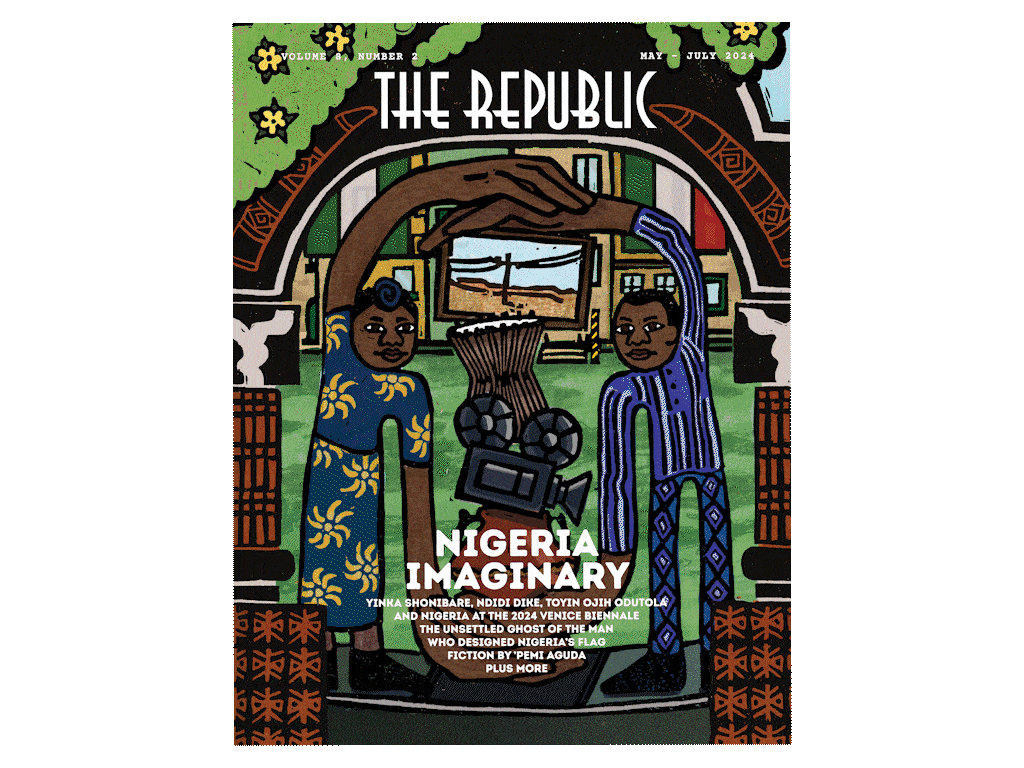 ₦10,000.00 – ₦30,000.00Select options This product has multiple variants. The options may be chosen on the product page
₦10,000.00 – ₦30,000.00Select options This product has multiple variants. The options may be chosen on the product page
THE GOOD VS BAD STATE
Discussions about LGBTQ+ rights globally often intertwine with broader geopolitical agendas, sometimes inadvertently perpetuating neo-imperialist attitudes. Neo-imperialist attitudes refer to contemporary forms of domination or influence exerted by powerful nations or corporations over weaker countries, often through economic, political, or cultural means, perpetuating a relationship of dependency and exploitation.
This is particularly evident in LGBTQ+ advocacy in non-Western countries like Nigeria. There’s an international divide among states regarding LGBTQ+ issues. This is often portrayed as a simplistic liberal versus illiberal dichotomy, implying moral superiority and inferiority. For instance, African countries like Uganda, Nigeria, and Ghana are often criticized as ‘bad states’ for their discrimination against LGBTQ+ people, while the USA and the UK are praised as ‘good states’ supposedly supportive of LGBTQ+ rights.
In this framework, ‘the African’ is labelled as deviant for perceived failure in supporting LGBTQ+ rights within their societies. This perception stems from the belief that LGBTQ+ rights are foreign to African cultures, contrasting with Western practices of queerness. This overlooks the historical and cultural contexts where queer communities have thrived in non-Western nations, erased by colonial influences. Non-Western states are portrayed as flawed, justifying interventions under the guise of human rights.
This narrative obscures underlying dynamics reinforcing inequalities and economic disparities. It creates a fetishized LGBTQ+ persona, used to justify enacting human rights laws, perpetuating colonial power dynamics. Non-Western LGBTQ+ people are portrayed as incapacitated, delegitimizing their agency. This reflects and perpetuates notions of racial and economic superiority. Western dominance is sustained through neoliberal regimes and capitalist ventures, with technologies of surveillance and control upholding Western control of knowledge and power, dictating aid access and reinforcing military interventions.
shop the republic
PATRIARCHAL NATIONALIST REJECTION
African nationalists, including politicians, activists, and scholars have tried to dissociate negative associations from their cultural identity by highlighting their sense of African cultural practices. However, these efforts often reinforce colonial paradigms that link queerness with primitivism and perpetuate laws criminalizing queerness. Postcolonial nationalists, therefore, in a claim to their culture and sovereignty, contribute to the marginalization of queer people within their communities by replicating structures of power they resist.
This is the same dynamic that exists with the experiences of other marginalized groups in Nigeria: women, the poor, and children. The way the state treats these groups is for very similar reasons. They prioritize elite interests, essentialize complex identities, and marginalize voices, complicating notions of liberation and agency.
The dominance of Western states further obscures non-Western societal conceptualizations. This dynamic leaves queer Nigerians in a challenging position, advocating for their rights against patriarchal postcolonial nationalists who use colonized cultural authenticity to deny their existence, placing them in a precarious space. These dynamics are what we see in Nigeria’s formation of the SSMPA.
In 2009, Ojo Madueke, then minister of foreign affairs, addressed the United Nations Universal Periodic Review (UNUPR), denying the existence of LGBTQ+ groups in Nigeria and reinforcing heteronormative frameworks as part of Nigerian culture. Madueke claimed that there is ‘no record of any group of Nigerians who have come together under the umbrella of Lesbian, Gay and Transgender group; let alone to start talking of their rights.’ He continued:
During our National Consultative Forum, we went out of our way to look for the Gay, Lesbian and Transgender Group but we could not come across Nigerians with such sexuality… If they are an amorphous group, then the question of violence against them does not arise let alone negotiating special rights for them… Sexual minorities are not visible in Nigeria, and there is no officially registered association of gay and lesbians… No sexual minority or their representatives attended the Forum.
The law to criminalize LGBTQ+ people was already underway following Obasanjo’s 2006 bill, setting the stage for discussions at the UNUPR. However, despite this, Madueke emphasized that there were no LGBTQ+ people. So, who were they making the law against?
Notably, LGBTQ+ people were present at the Nigerian Consultative Forum Madueke referenced. An activist, recounting the event to me, highlighted that LGBTQ+ people were there and were standing up for their rights; however, many attendees didn’t openly identify as LGBTQ+. This shows the struggle between viewing ‘queer’ as an identity versus an act, showing how LGBTQ+ people mobilized without openly identifying themselves as such.
Madueke’s motives may be questionable, and there’s evident homophobia, but Madueke didn’t lie. As I have discussed, historically, queer Nigerians didn’t organize under a unified LGBTQ+ identity or have their issues championed on an identity framework; they were part of broader movements addressing material needs. The emerging approach of mobilizing and, therefore, being punished under LGBTQ+ frameworks mirrored what was expected in Euro-American contexts. There was no prior understanding of this by Western advocates who pressured the Nigerian State and the Nigerian queer people to adopt similar strategies.
The increased visibility of LGBTQ+ people, particularly in the West, relied heavily on Western frameworks, associating being LGBTQ+ with Western culture. African patriarchal nationalists reject this association, fuelled by the lack of positive portrayals of LGBTQ+ identities in local media. Instead, they rely on Western media representations, leading to the perception of queerness as foreign and tied to whiteness.
Despite the awareness of colonial history and Western influence, patriarchal nationalists use homophobia and discrimination to protect their cultural claims. This creates challenges for people in Nigeria and Africa who strongly identify with their LGBTQ+ identity, as it aligns with what they believe to be Western notions of queerness. Nigerians can recognize and label this Western alignment, further complicating interactions between the state and queer people. As queer people see to continue to establish that identity framework that the patriarchal nationalists see to be Western, this ultimately leads to the establishment and justification of laws like the SSMPA.
When examining Nigeria’s laws criminalizing queer people, the recurring pattern suggests a broader issue with how the West interacts with Africa. While it’s common to criticize the Nigerian state for its homophobia, the root of the problem is more multifaceted than that. We must acknowledge that the Western influence on Africa extends beyond the colonial era and persists today. The discrimination against LGBTQ+ people is not solely about homophobia; it’s also a resistance against ongoing Western intervention, which dictates African actions. The use of laws to oppress queer people serves as a pretext for this resistance.
It’s crucial to engage deeply with how the West perpetuates issues from the colonial era. In colonial times, they deemed us primitive for queer acts they observed, and now they label us primitive for laws against those acts they imposed. Our struggle isn’t just against our governments; it’s also a struggle against Western dominance, and it’s time we acknowledge that⎈
shop the republic
BUY THE MAGAZINE AND/OR THE COVER
-
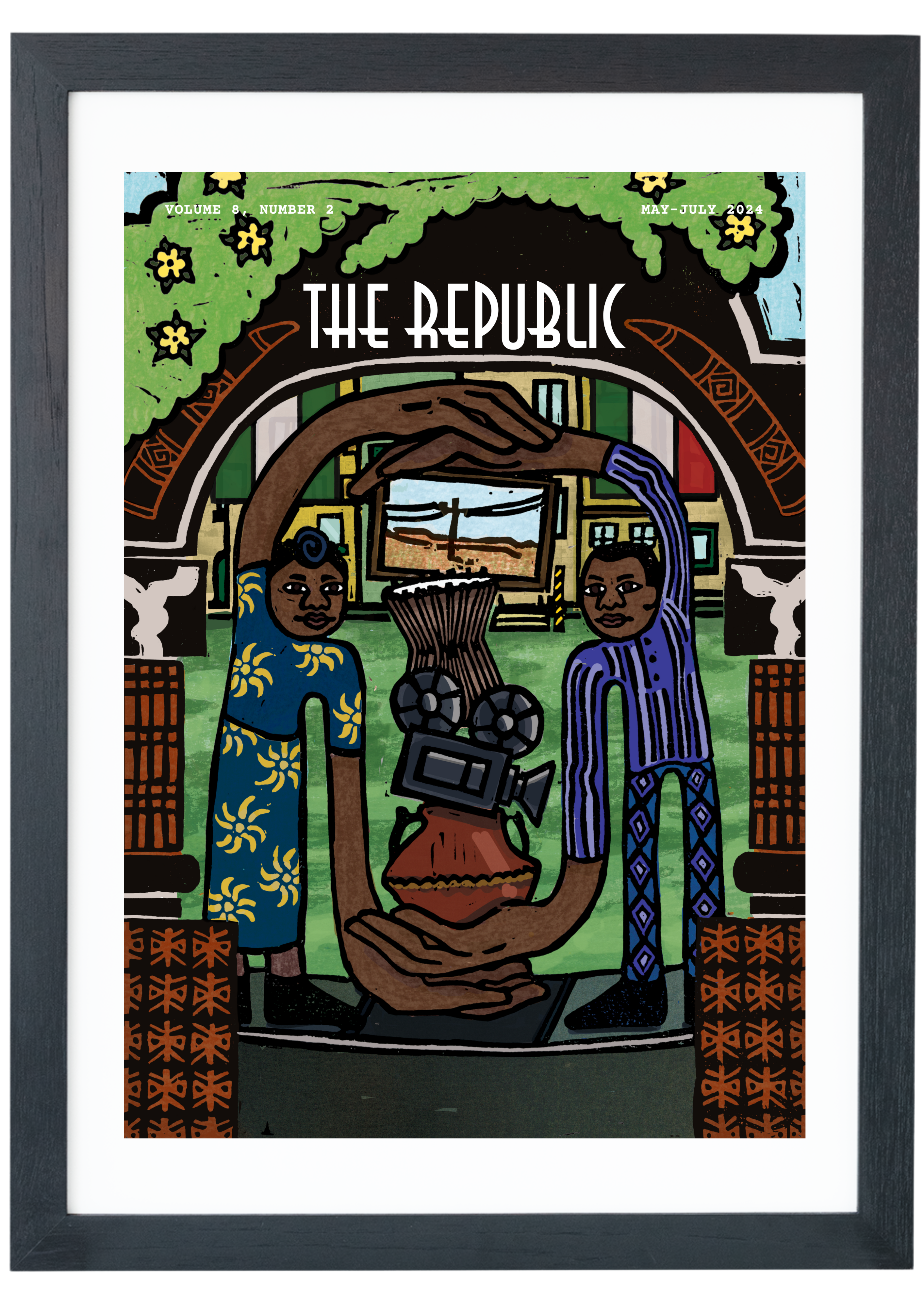 ₦140,000.00 – ₦150,000.00Select options This product has multiple variants. The options may be chosen on the product page
₦140,000.00 – ₦150,000.00Select options This product has multiple variants. The options may be chosen on the product page -
 ₦10,000.00 – ₦30,000.00Select options This product has multiple variants. The options may be chosen on the product page
₦10,000.00 – ₦30,000.00Select options This product has multiple variants. The options may be chosen on the product page




